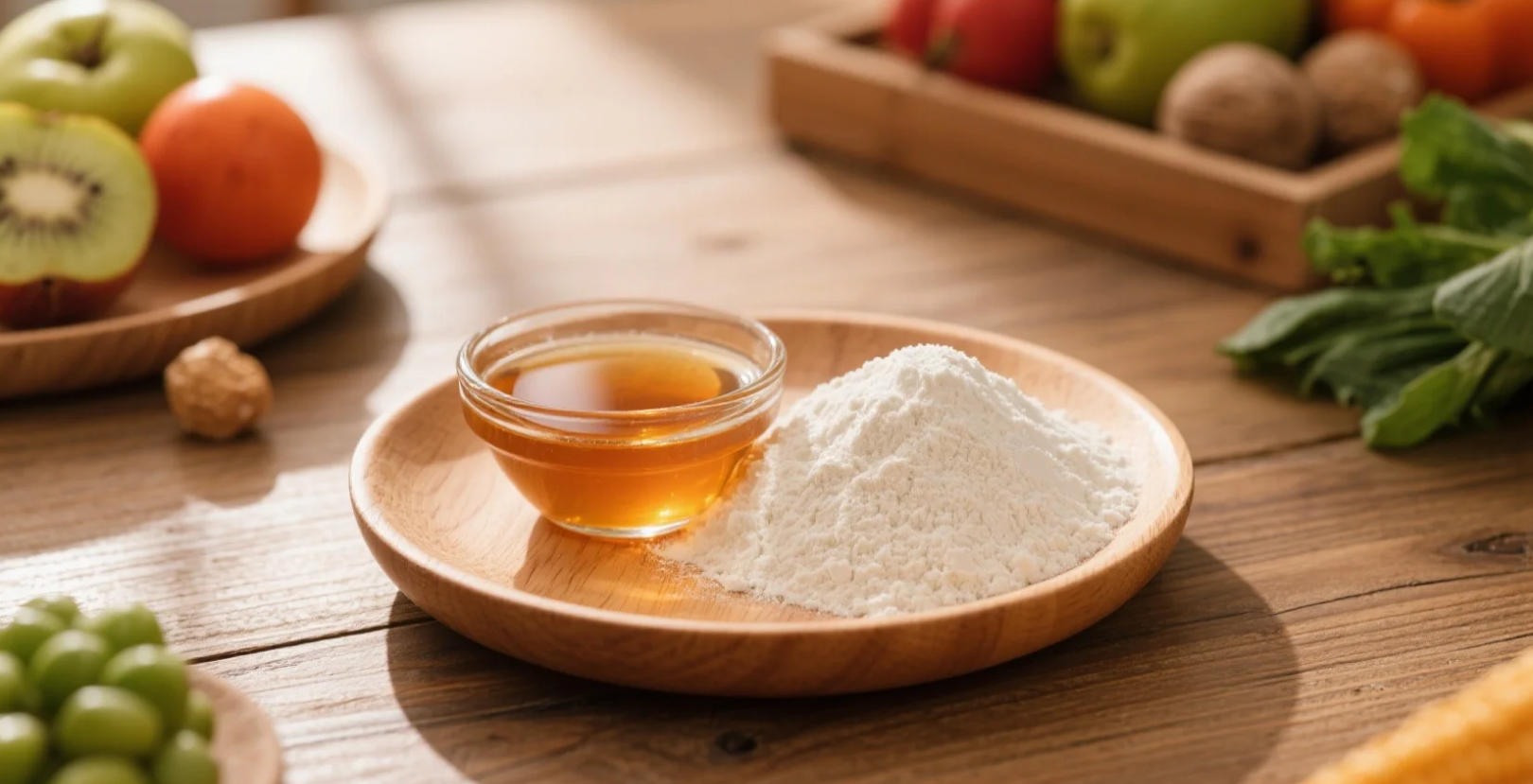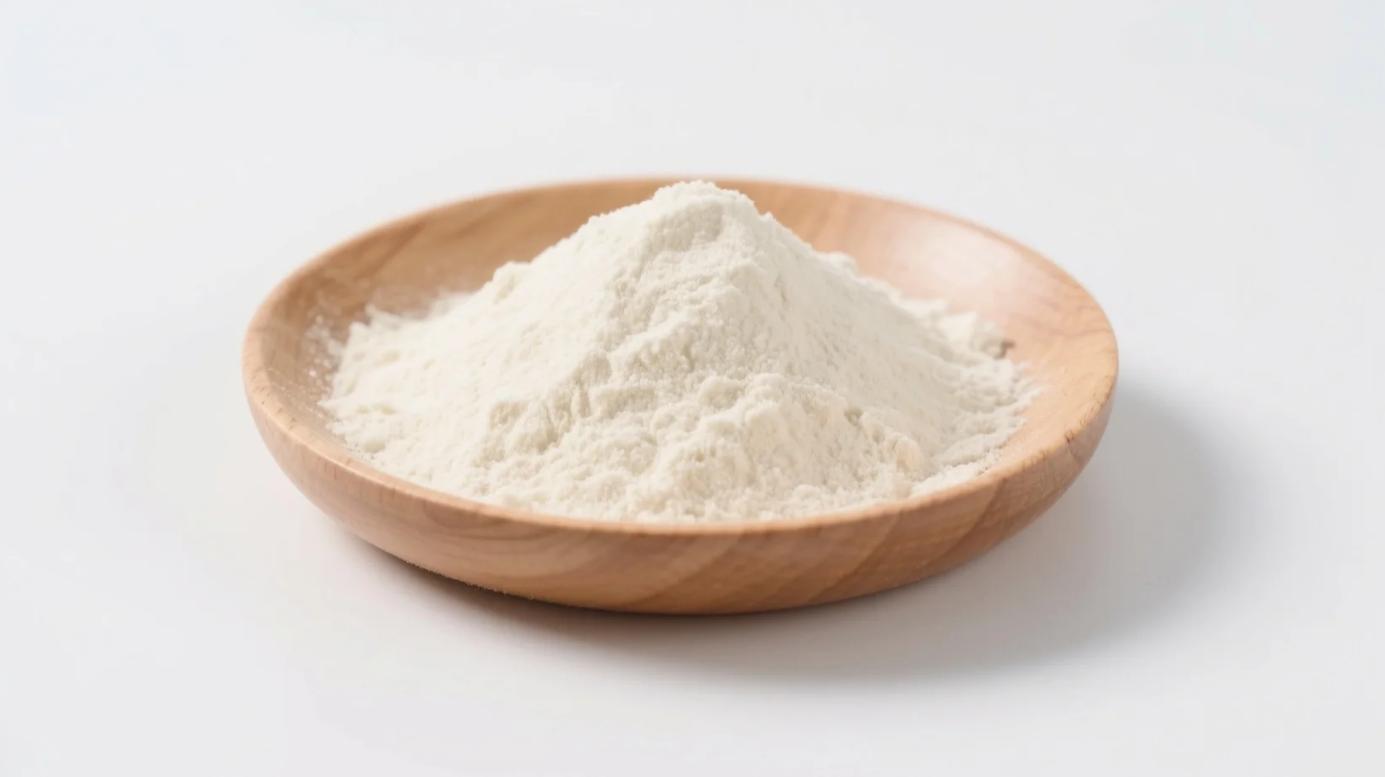In today’s food industry, one of the greatest challenges for manufacturers is enhancing nutrition without sacrificing flavor or texture. Consumers are increasingly health-conscious, seeking products that deliver high fiber, low sugar, and organic certification, yet still taste great.
This is where organic resistant dextrin powder shines. As a versatile soluble dietary fiber, it allows brands to improve nutritional value, enhance digestive health, and support sugar reduction goals—all while maintaining a clean, pleasant sensory profile.
What Is Organic Resistant Dextrin Powder?
Organic resistant dextrin is a soluble fiber derived from organic starch sources such as tapioca, corn, or wheat. It is produced through controlled enzymatic or heat processing, creating a fiber that resists digestion in the small intestine and acts as a prebiotic in the colon.
The result is a neutral-tasting, highly soluble powder that offers multiple health and functional benefits, making it suitable for a wide range of food and beverage applications.
The Nutritional Benefits of Organic Resistant Dextrin
- Increases Dietary Fiber Intake
Most consumers fail to meet their daily fiber requirements. Organic resistant dextrin provides an easy way to boost fiber levels in foods and drinks, supporting digestive health, bowel regularity, and gut microbiota balance. - Supports Blood Sugar Regulation
Resistant dextrin has a low glycemic index, meaning it helps stabilize post-meal blood glucose levels. This makes it ideal for products targeted at diabetic-friendly, low-carb, or keto consumers. - Aids Weight Management
As a low-calorie fiber, it promotes satiety, reducing overeating and supporting weight control naturally. - Enhances Gut Health
By acting as a prebiotic, resistant dextrin feeds beneficial gut bacteria, contributing to a healthier digestive ecosystem and improved nutrient absorption.
How It Improves Nutritional Profiles
Many processed foods—especially snacks, baked goods, and beverages—lack sufficient fiber. By integrating organic resistant dextrin, manufacturers can transform these products into functional, health-oriented options without changing their sensory appeal.
Key improvements include:
- Higher fiber content (up to 90% soluble fiber)
- Lower calorie density
- Reduced sugar load
- Enhanced nutritional labeling potential (“source of fiber,” “supports digestion,” etc.)
Taste and Texture: The Invisible Advantage
While other fibers can cause unwanted grittiness, bitterness, or viscosity, organic resistant dextrin is virtually invisible in formulation. It dissolves easily and blends seamlessly without altering:
- Flavor — It has a neutral taste, making it perfect for flavored beverages, protein powders, or snacks.
- Texture — It does not cause stickiness or thickness, preserving the product’s original mouthfeel.
- Appearance — It remains clear and stable in liquid applications, maintaining visual appeal.
This makes it one of the few functional fibers that can improve health claims while keeping the sensory experience intact.
Application Examples
- Functional Beverages
- Adds fiber without affecting clarity or taste.
- Supports “low sugar” and “gut health” claims.
- Baked Goods and Cereals
- Enhances nutritional value and texture.
- Replaces part of sugar or starch for calorie reduction.
- Nutritional Bars and Shakes
- Provides satiety and fiber enrichment.
- Prevents hardening over shelf life.
- Dairy Alternatives and Smoothies
- Acts as a stabilizer while adding fiber.
- Improves creaminess and nutritional balance.
Why Organic Certification Matters
Choosing organic resistant dextrin strengthens a brand’s clean-label positioning. Organic certification guarantees:
- No synthetic chemicals or GMOs
- Environmentally sustainable sourcing
- Consumer trust and higher market appeal
As consumers continue to prioritize natural and transparent ingredients, organic certification becomes a decisive factor in purchase decisions.
Supporting Sugar Reduction and Functional Formulation
One of the most valuable aspects of resistant dextrin is its ability to partially replace sugar or carbohydrate solids in formulations. It offers mild sweetness and body, which helps maintain flavor and texture when sugar levels are reduced.
This function makes it a key ingredient in low-sugar, low-calorie, or diabetic-friendly product development, bridging the gap between health goals and sensory satisfaction.
The Business Advantage
For food and beverage manufacturers, using organic resistant dextrin powder means:
- Easy incorporation into existing recipes
- Improved nutritional labeling claims
- Enhanced consumer perception of quality and healthfulness
- Compatibility with vegan, gluten-free, and organic markets
It allows brands to stand out in a competitive marketplace where “better-for-you” and “clean-label” products are in high demand.
Conclusion: The Smart Fiber for Better-Tasting Nutrition
Organic resistant dextrin powder is more than a fiber—it’s a strategic ingredient that allows manufacturers to deliver healthier, tastier, and cleaner food solutions.
By enhancing nutrition without altering taste, texture, or appearance, it provides a perfect balance between science and sensory pleasure—a true win-win for brands and consumers alike.
As the global demand for functional, natural, and organic foods grows, organic resistant dextrin will remain a cornerstone for next-generation clean-label nutrition.
Recommended Product
Organic Resistant Dextrin
Low-Calorie Prebiotic Fiber for Digestive Health & Clean-Label Formulations

